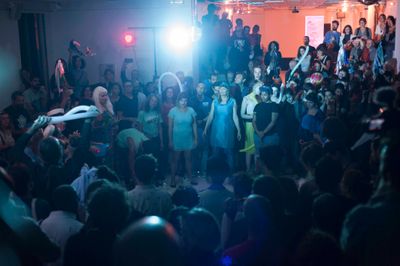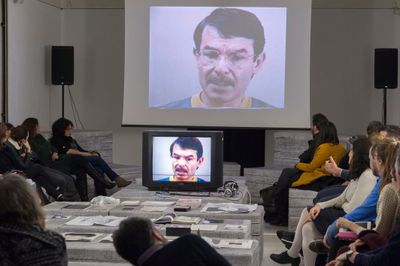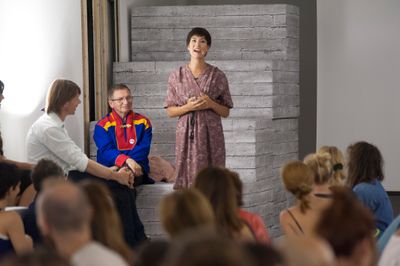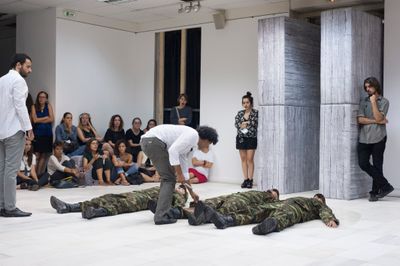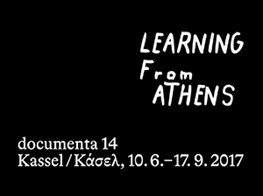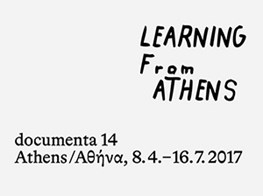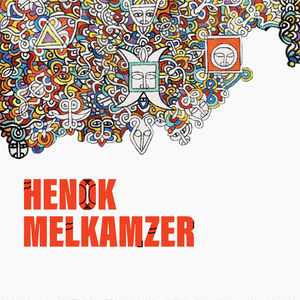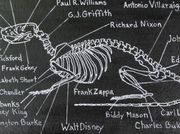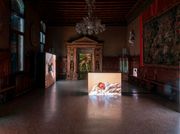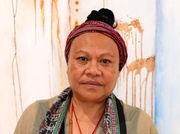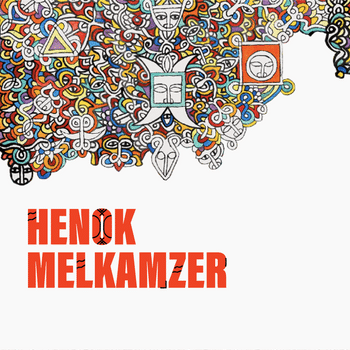documenta 14: a reflection before the opening
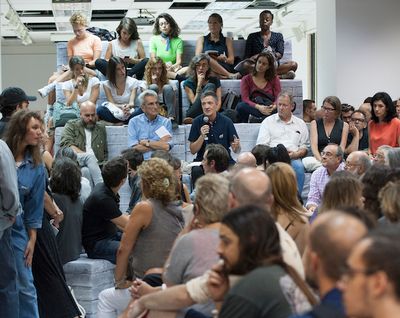
Opening of the Public Programmes of documenta 14 at Parko Eleftherias, Athens. Andreas Angelidakis, Antonio Negri, Paul B. Preciado. Courtesy documenta. Photo: Stathis Mamalakis.
Held at the end of February 2017, 'The Society of Friends of Ulises Carrión' was one of the 'Open Form Societies' staged as part of documenta 14's public programmes, 'Parliament of Bodies'. During this meeting, curator Magalí Arriola talked about Ulises Carrión's techniques as a conceptual artist, and the reception of his work within the Mexican art scene of the late 1990s, after his death. Arriola discussed Carrión's questioning of identity (in the 1950s and 60s he lived in Mexico, France and England before settling in Amsterdam in the early 1970s) and his investigation of cultural strategies and communication tactics (among other things, he wrote in Spanish, English, Dutch, and French). Arriola suggested that Carrión provided an alternative to the exoticisation of Mexican artists of the 1990s by foreign curators, who tended towards an emphasis on depictions of violence.
In response to Arriola's talk, Paul B. Preciado, curator of documenta 14's public programmes, wondered what kind of tactics Greek artists could use as a remedy to the exoticisation of the local scene in connection to the Greek crisis. Indeed, even before documenta announced its decision to split the exhibition between Kassel and Athens under the working title 'Learning from Athens', Athens and its artistic scene were both already being used by foreign intellectuals and press as a case study for resistance in a time of socioeconomic breakdown. This made documenta's intention to explore this process of exoticisation in Athens—while reflecting on its own (accused by many as colonial) role as a mega institution landing on a peripheral scene—a fitting one for the time and place.
Preciado, defining himself as an activist more than a philosopher or curator, has publicly talked about the struggle the current documenta team has faced against the ideology and history of such a canonising institution and the implications it has on a context like Athens. In response, 'Parliament of Bodies' was conceived as an assembly of resistance, giving space to issues concerning queer, trans, migrant and indigenous movements. This assembly was communicated in a series of events (performances, lectures, walks, rituals) that aimed, as the introduction text states, 'to write a queer anticolonial symphony of Europe from the 1960s, scripting dialogue and giving visibility to dissident, heterogeneous, and minor narratives.'
But this intention to draw interconnections between peripheral histories was soon tripped up by the fact that the majority of the interventions in documenta 14's public programmes leaned towards a romanticised image of resistance. There was anthropologist Neni Panourgia's talk 'Chronotopes / Dystopic Geometries / Terrifying Geographies', an emotionally charged oral and visual 'tour' from Parko Eleftherias to Makronisos (a prison island during the civil war and military dictatorship); and Angela Brouskou's theatrical performance Epitafios II, bringing together Thucydides's History of the Peloponnesian War and Cornelius Castoriadis's The Problem of Democracy Today. In such cases as these, the framing of documenta 14's public programmes was limited to a timeless fantasy drawn from ancient and contemporary myths, all satisfying the constructed image of Athens as the resisting subject par excellence in the struggle against the international collapse of democracy, dignity and the welfare state.
Instead of including works and interventions in the public programmes that touch on local histories in unexpected ways so as to resist superficial and stereotypical readings, the much discussed involvement with Greek history in 'Parliament of Bodies' was in many cases both overly sentimental and confident. Emphasis was placed on seductive images that reproduced easy meanings instead of activating fragile and fluid histories. A characteristic example is the Dictionary of Greek military junta LTI—Lingua Tertii Imperii by artist Daniel G. Andujar, the only publication created for the public programmes—a simplistic and superficial recording of the junta at best, created with archive images sometimes contrasted with images of ancient statues with visual similarities. Even the emphasis on the queer and trans subject—crucial in the context of Greek society, which has witnessed the rise of the extreme right and the canonisation of fascist and nationalistic discourses in the media and public sphere—has become less relevant and influential as a result of it being absorbed into a nostalgic mélange of historical resistance.
With the main exhibition in Athens set to open on 8 April, followed by the opening of the Kassel show in June, it is too early to gauge documenta 14's true impact on the local art scene. But judging from 'Parliament of Bodies'—as well as the presence of documenta 14's team working in Athens for almost two years—documenta 14 should consider how it has adopted the role of a marginalised other in terms of institutional critique, but has also played a role in othering and alienating the Athenian art scene. By identifying with oppressed subjects and adopting the strange position of an ignorant schoolmaster who has come to 'learn from Athens' (as widely stated by its artistic director Adam Szymczyk), documenta 14 claims to be adopting the role of the visitor as opposed to that of a host in order to regain the urgency that the institution once had. But there is an acute sense of pressure coming from the presence of a large-scale canonising institution such as this. Indeed, documenta came uninvited to Athens, imposing its presence on an art scene largely hit by crisis, raising expectations and drawing artists and art practitioners from all over the world to visit or live in the city, open pop-up project spaces, and even buy cheap apartments, foreseeing a possible gentrification in the future. As a result, the institution's presence in the Athenian art scene was described as 'inconceivable' and 'a shock' by curator Evangelia Ledaki in a recent roundtable staged at the Panteion University in January 2017 titled 'The Politics of Curating', organised by 'Learning from documenta', a two-year research project situated between anthropology, art and the media.
As far as addressing local critiques, documenta has tended to self-victimise rather than address the arguments and involve serious voices of opposition in its discourse. Of course, this defensive attitude might have to do with the hyperbolic attacks from the mainstream local press after the inauguration of 'Parliament of Bodies' in September 2016, which took place with a ten-day series of events titled '34 Exercises of Freedom'. (At the time, some critics accused documenta 14 of being an agent of the Syriza government based on the leftish rhetoric they found in Preciado's introduction text.) This defensiveness was present in 'The Politics of Curating' roundtable, when Preciado (part of the panel) and documenta 14's curator-at-large Bonaventure Soh Bejeng Ndikung (who was part of the audience), failed to answer questions on the tactics documenta 14 has used to become familiar with the local context. Instead, they used an audience question as to why there is not a single Greek curator in the documenta team to focus the debate on the fact that the local art scene is taking documenta too personally ('documenta is bigger than Athens') and is obsessed with how many Greek artists will be included, framing the debate on the bipolarity of inclusion/exclusion. In the same panel, Kostis Stafylakis called documenta 14 an orientalist project that is fetishising the Greek word for freedom (eleftheria)—referencing the '34 Exercises of Freedom' events that took place in September 2016—without pointing out that it is linked to specific historical processes. It is because of issues like these that the suspicions surrounding the institution's presence in Athens abound, given the local narratives it chooses to highlight, and those it chooses to ignore.
Here, perhaps local concerns have more to do with the threat of an empty gesture, in which documenta 14 will not only reduce itself by reproducing reductive ideas surrounding local and global populisms—as different political forces inside and outside Greece so often do—but also reduce Athens in the process.
Apart from the public programmes and the well-curated screening programme 'Keimena/ Texts', for which video and film works—including CAMP's documentary From Gulf to Gulf to Gulf (2013) and Parviz Kimiavi's documentary The Garden of Stones (1976)—were shown on public television every Monday at midnight (from 19 December 2016 to 18 September 2017), documenta 14's public presence in Athens has been quite low-profile, engaging mainly an informed art audience and specific communities. Even educational activities have taken place behind closed doors, addressing mainly the students of the School of Fine Arts, or have been staged as salon-style events with visiting artists and selected guests, staged in the premises of Prevelakis Hall in the Athens Polytechnic. (It is important to pointout here that documenta funded the refurbishment of Prevelakis Hall—a move that does suggest, as Szymczyk has repeated many times in his public talks in Athens, that documenta 14 really will be 'leaving something behind'.)
One month before the opening in Athens, the institution has begun to make itself more visible, with different events announced under the title 'Synantiseis' ('Meetings'), which includes artist Mary Zygouri and art historian Irene Gerogianni's lecture performance linking the apolitical documenta of 1968 with the work of Maria Karavela, a historic figure of Greek performance in the 70s whose practice had a lot to do with resistance to the Greek dictatorship. Another scheduled meeting includes documenta 14 curator Hendrik Folkerts and art historian and curator Eirini Papakonstantinou's exploration of 1982, the year of documenta 7. But with all this self-reflection, it is still not clear how deep documenta has gone, or will go, in the process of reflecting on the orientalist aspects of its experiment in Athens, especially when using the anticolonial and indigenous positions in order to do so. The same goes for the self-criticism needed by the local institutions currently being flattered by documenta's presence.
Only time will tell what will come out from the institution's intention to work within Athens' existing structures and collaborate with local institutions (museums, art centres, art schools, the Municipality, and so on). Indeed, even this attempt of collaboration is in many ways an ongoing power game that has uncovered certain pathogenies of the weak local institutional structure, possibly seeing documenta as a patron/philanthropist and being unable to negotiate the terms by which local art production is framed. And with all the talk of engagement in Athens, it would be interesting to know exactly why the only art institution that documenta is not collaborating with is surprisingly the Athens Biennale, the most influential contemporary art institution within the local art scene. Szymczyk has publicly expressed his admiration for the Athens Biennale and the influence its previous edition, Agora, has had in his proposal for documenta 14. In fact, the general setting, format and themes of 'Parliament of Bodies' have many references to Agora, often resulting in a sense of déjà vu.
Nevertheless, the issues that documenta 14's experiment in Athens has raised point to the ever-changing relationships between the spheres of the local and global, the current xenophobic calls to independence in different part of the world, and the politics behind the investment in art as an alternative agent of geopolitical pressure. These urgencies are ever-present in the Greek context.—[O]

